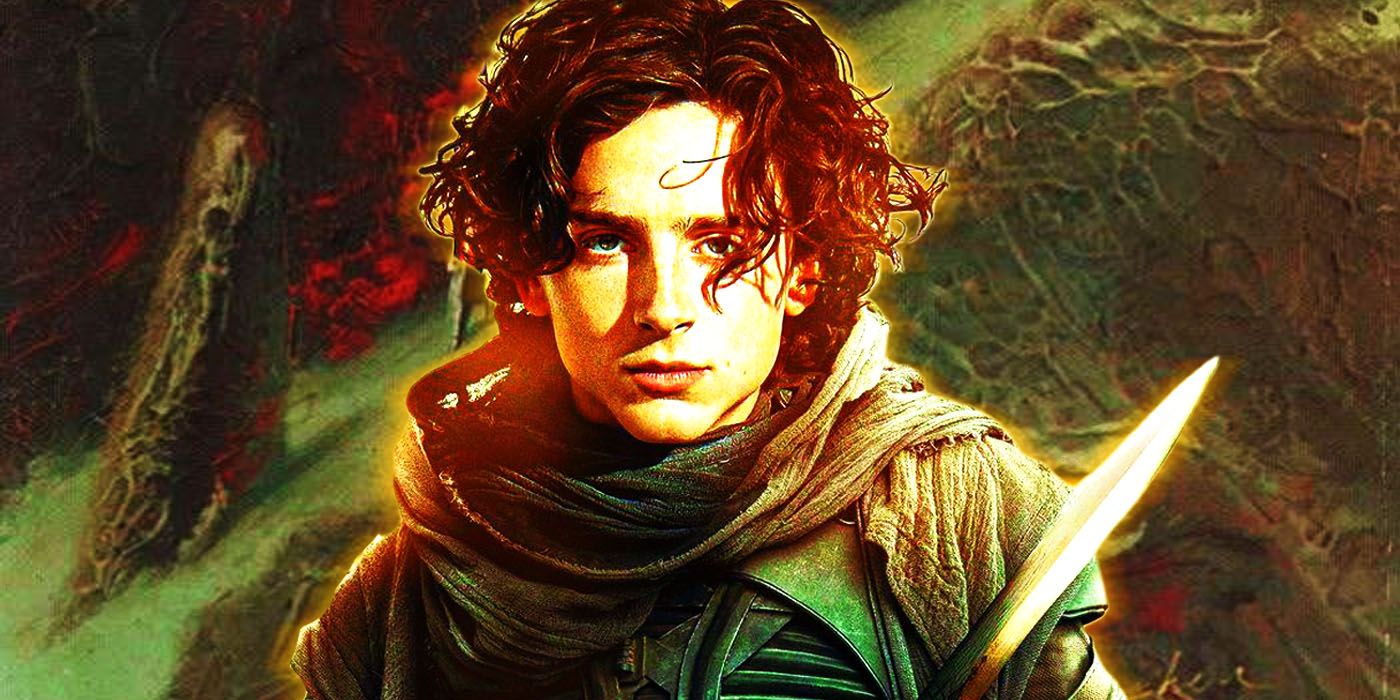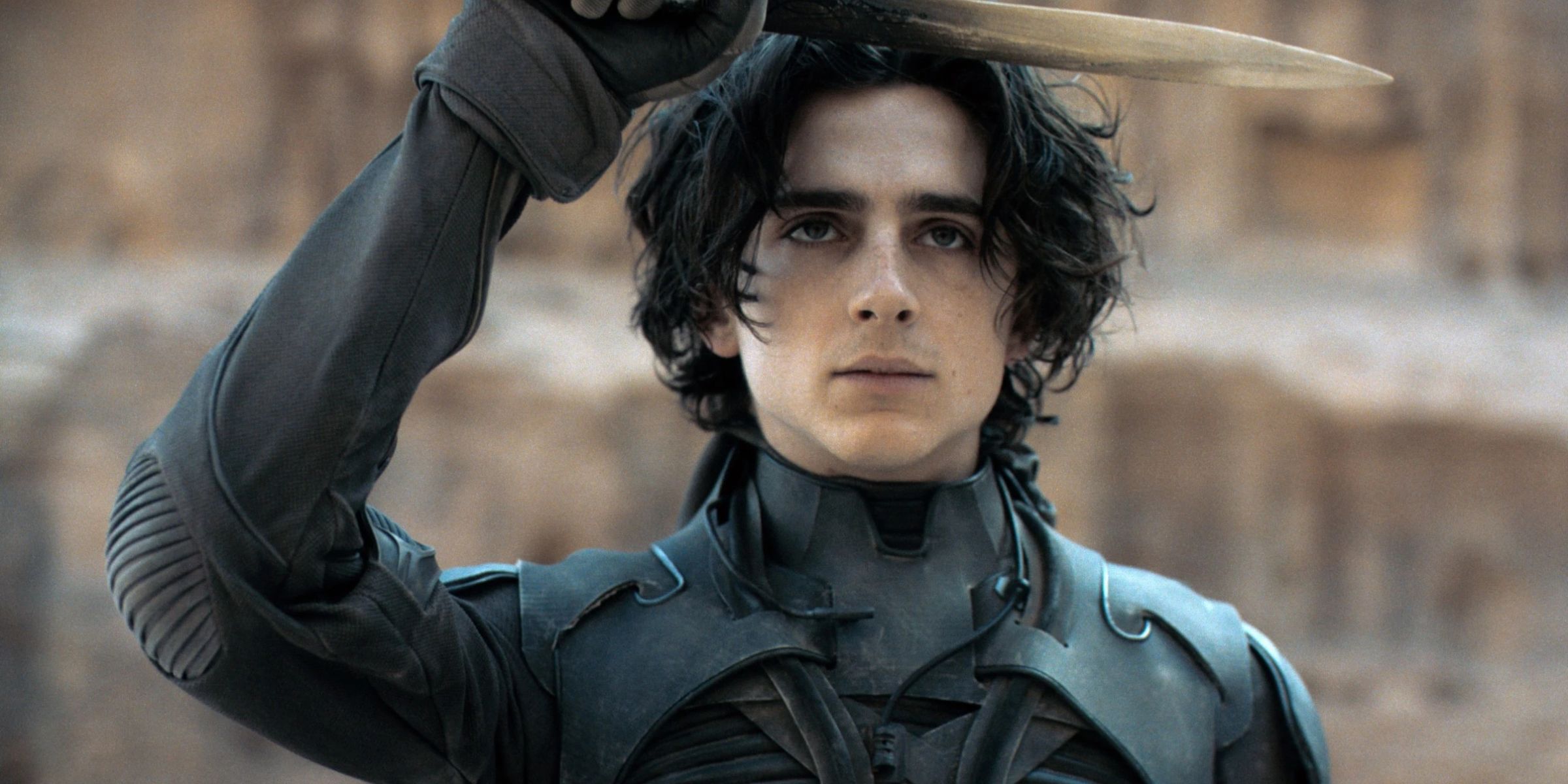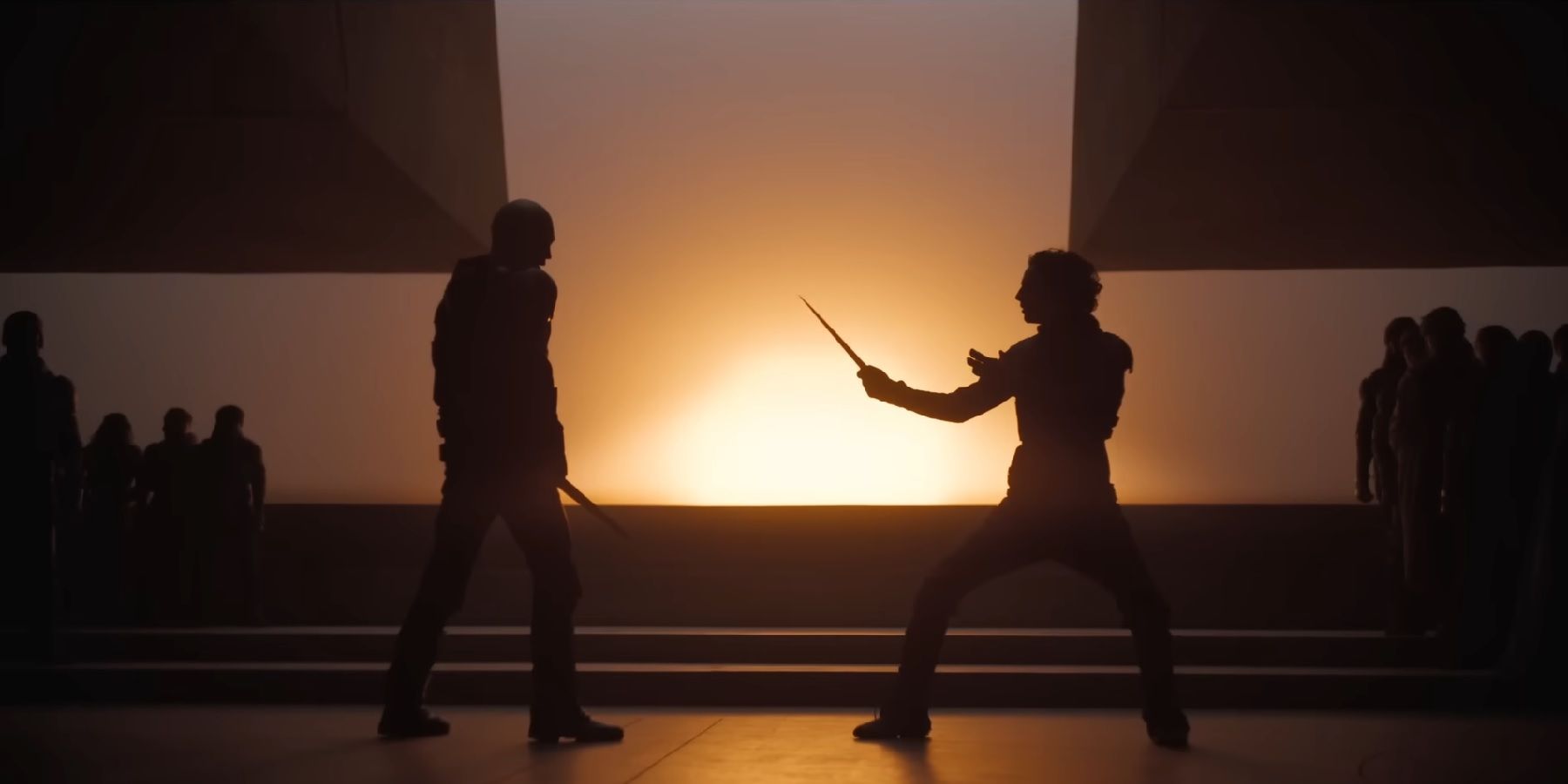Summary
- Human descent shapes Dune's universe, showcasing varied houses and religious conflicts akin to real humanity's history.
- Muad'Dib's Jihad pivotal in Dune's plot, with crucial differences in how it's portrayed in various adaptations.
- Villeneuve's challenge lies in balancing the epic scale of Dune's conflicts with character development in future films.
Much of Dune's appeal lies in how it deals with complicated geopolitics in a universe that, although there are some marked differences, retains many of the recognizable features of humanity as a whole. All of the unique houses and planetary inhabitants in the series are distant descendants of the original inhabitants of Earth, who left the planet to inhabit remote corners of the Known Universe. Though this accounts for the many variations in appearance and attitudes between House Atreides, House Harkonnen, and others, all of them retain some of the more recognizable features of humanity. Religions and worship remain prominent, and war between the factions is common.
The combination of these two factors leads to one of the more troubling narrative threads in the original novels — Muad'Dib's Jihad. Though undoubtedly one of the more memorable and enthralling arcs of the story, Dune: Part Two portrays it in a different, and arguably more appropriate, way. It also stands in stark contrast to the earlier 1984 version of the story directed by David Lynch, which approaches the story's religious aspects far differently than the two more recent films do. Lynch never got the chance to explore events beyond Paul Atreides' ascension. The new films from Denis Villeneuve do, and they'll need to address the question of Muad'Dib's Jihad very carefully.
Updated on March 20, 2024, by Robert Vaux: The article was originally written before the release of Dune: Part Two. It has been updated to include additional information from the most recent film. In addition, its formatting has been adjusted to meet CBR's current guidelines.
Muad'Dib's Jihad Is One Of The Most Devastating Events In Dune
|
Title |
Tomatometer Rating |
Metacritic Metascore |
IMDb Rating |
|---|---|---|---|
|
Dune: Part Two |
93% |
79 |
8.8 |
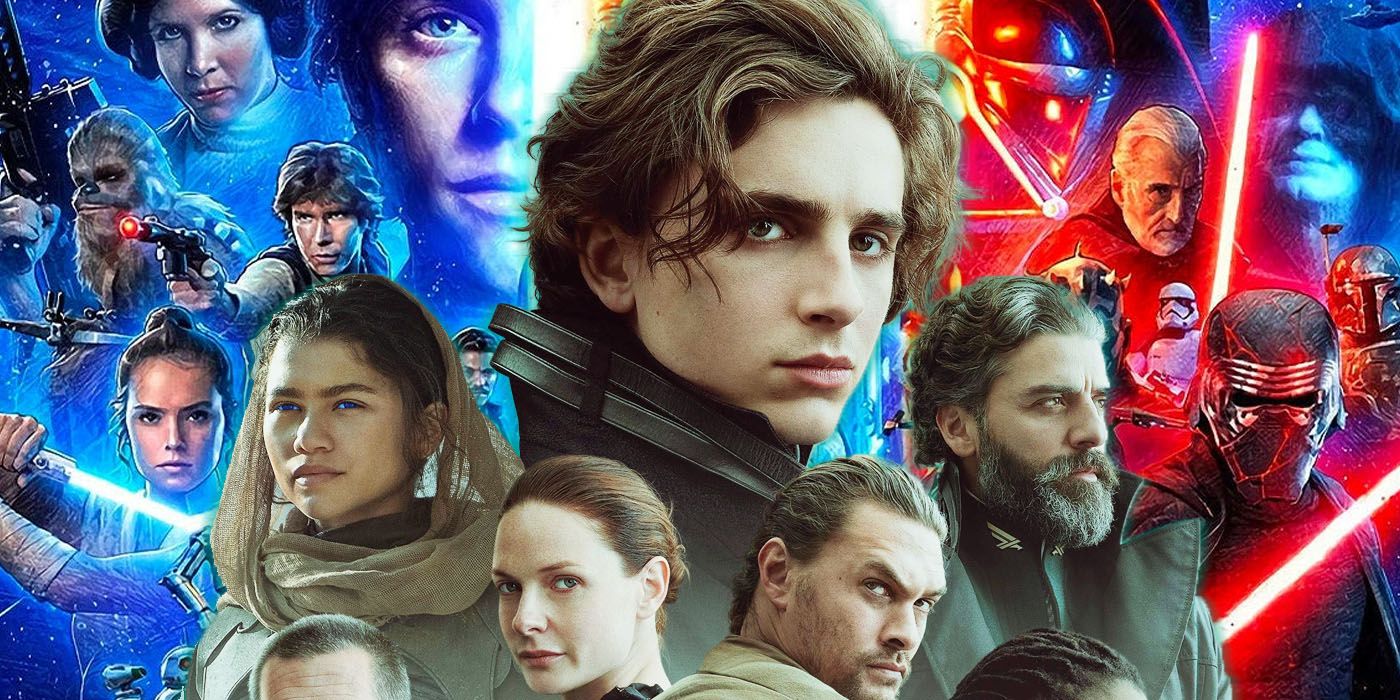
How Did Frank Herbert Feel About Star Wars' Dune Influence? It's Complicated
Frank Herbert's feelings about Star Wars — and its similarities to his epic Dune series — were decidedly mixed. Here's why it's not a simple answer.The Jihad itself starts after the events in the first Dune movie, which see Paul Atreides join the Fremen, where he will go on to take the name Muad'Dib. He lived with the tribe, growing his reputation as a leader by leading them to many victories over the occupying Harkonnen forces before eventually riding a Sandworm and becoming fully ingratiated as one of their own. This leads to a great victory for Paul and the Fremen at the Battle of Arrakeen. The Atreides Empire is subsequently formed to replace the Imperium, with Paul at its head, but what happens from here becomes known as Muad'Dib's Jihad.
The events of Dune: Part Two play out in the initial stages of this narrative: opening with Paul and his mother Jessica participating in an effective guerrilla war against the Harkonnens. He plays a dangerous game with the belief that he could be a messiah. It's politically useful in helping him to unite the tribes against his enemies, but he's troubled by the implications. He's experiencing visions as well, and is uncertain of their place in his journey. But they may also be necessary if he wants to follow them to victory.
The movie covers his steps to fully integrate with the Fremen, including riding a sandworm and his mother's ascension to the status of Reverend Mother by drinking the deadly Water of Life. At the same time, it toys with the notion that these steps could be part of a larger destiny. Paul simply isn't sure he wants it.
For better or worse, however, events push him down that path just the same. Whether fated to or not, he leverages the growing religious reverence surrounding him into a true holy war, fed by the increasing atrocities of the Harkonnens and culminating in a lightning strike on the Emperor himself when he visits the planet. Along the way, he himself drinks the Water of Life and undergoes a transmutation whose implications have yet to be revealed.
The film ends with the destruction of the Harkonnens at Paul's hands. He forces the Emperor to abdicate to him and launches his great Jihad just as the credits roll. It's a strong point to end the action, as the events roughly match that of the end of Herbert's first novel. Paul has killed the Harkonnen leadership and avenged his father, and while there are clearly still plot threads to resolve — such as the birth of Paul's sister Alia and the impact of his political marriage to the Emperor's daughter — audiences can leave the theater with a solid level of closure.
Altering How The Jihad Plays Out Could Be Better For The Dune Movies' Narrative
Villeneuve has openly discussed a third entry in the film series, which would open up the events of Herbert's first sequel Dune: Messiah, and further explore what exactly Paul has unleashed. After securing the planet of Arrakis, the Fremen decided to expand their war to other places. Every planet, totaling millions, fell victim to this war, with the rampant forces of the Atreides Empire pillaging every world aside from the traditional homeworld of Paul and his family on Caladan.
Lady Jessica, Paul's mother, refused any access to the planet, even for pilgrimage, and the ever-growing tribe respected this wish. The scale of the destruction is impossible to imagine, with estimates stating that at least 61 billion lives were lost while the campaign entirely sterilized 90 worlds. Additionally, 40 religions were lost forever, and 500 other planets were described as "demoralized."
The problem with the Jihad and its depiction in a potential Dune: Part Three is twofold. Firstly, it is vast in scale and spectacularly devastating, making its adaptation to the big screen a gigantic task. It's also not particularly helpful to the ongoing storyline around Paul's character as the central protagonist. The issue is heightened by the restricted runtime of a movie, even one as epic and lengthy as Dune. Accurately portraying conflict on this scale seems a near-impossible task, but it might be better for the films if they don't carry through the story as originally written in the book.
Villeneuve seems to have elegantly addressed the sheer logistics of it. Dune: Part Two ends with the start of the war spreading across the galaxy. A hypothetical Part Three could — and would probably need to — gloss over the details very easily without losing the essence of it. It could then pick up twelve years after the events of Dune: Part Two just as Dune: Messiah does, with now-Emperor Paul Atreides grappling with the fallout of his war and seeking some means of spiritual absolution.
The problem there is that glossing over the totality of the war lessens its severity. Billions are dead, entire worlds are destroyed, and the political machinations of those in power don't stop just because a new ruler wears the crown. In light of that — and his inescapable responsibility for that state of affairs — downplaying its severity even a bit would lower the importance of his moral reckoning, and the way the future of his Empire depends on it. Dune: Part Three must focus on those events if it wants to take the same path as Herbert. Shortening the events of the war, or reducing them to an opening narrative crawl similar to Star Wars, might be necessary, but it won't come without a price.
The Dune Saga Could Benefit From Overlooking The Jihad
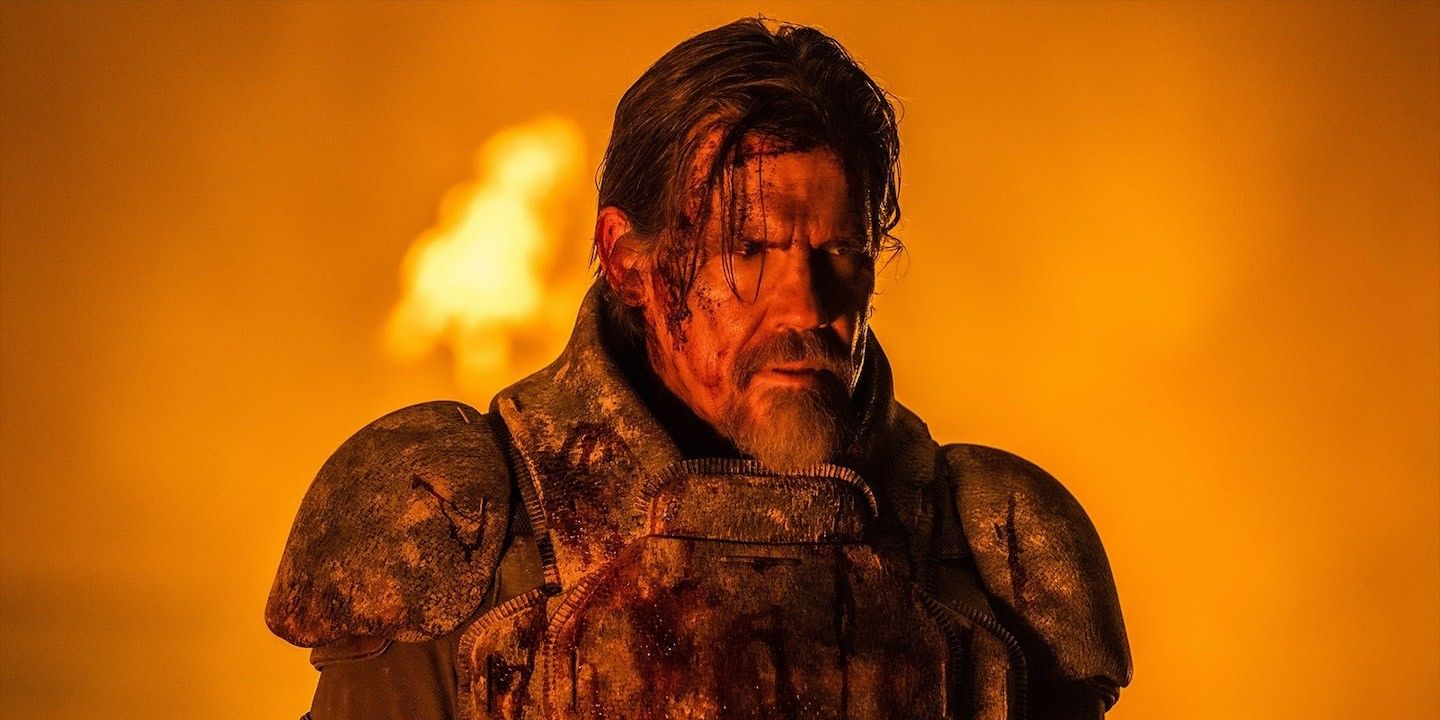
'Humanity Wins Again': Josh Brolin Says Dune: Part Two Tapped Into a Need for Great Stories
Dune: Part Two star Josh Brolin thanked the director and the series' author for the great stories.Villeneuve seems well aware of the danger and has set up his saga to address the very real challenges that an adaptation of this caliber requires. The events of Dune: Messiah can probably be encapsulated in a single movie, leaving the details of the Jihad itself more or less unspoken. That carries benefits and drawbacks, but such decisions are part and parcel with creating a respectful adaptation, which Villeneuve has unquestionably done.
The way Paul was built up in the first Dune movie sets him up to display his true powers as the Kwisatz Haderach and a relative messiah to the Fremen in Dune: Part Two. That said, his inability to control the effects of the Jihad undermines this hugely, and the movie format would not allow enough scope to resolve this effectively. Though it would undoubtedly be an enormous change, altering how the Jihad plays out in the wake of Paul's victory could help him retain his core characteristics in the eyes of the viewer. In any case, the practicalities of the situation may make this a necessity rather than a choice based on artistic license.
Dune: Part Two is currently playing in theaters.
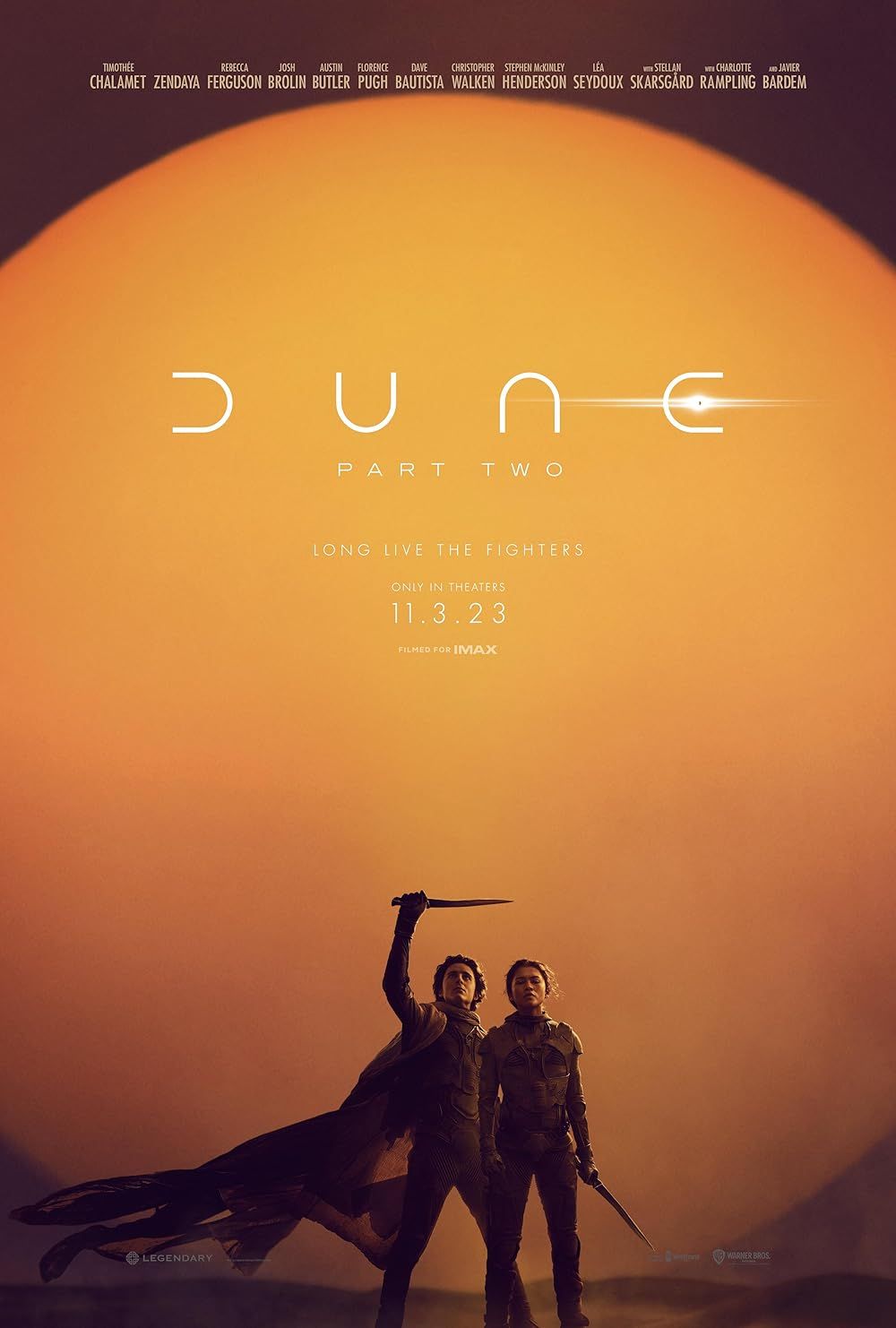
Dune: Part Two
Paul Atreides unites with Chani and the Fremen while seeking revenge against the conspirators who destroyed his family.
- Director
- Denis Villeneuve
- Release Date
- February 28, 2024
- Cast
- Timothee Chalamet , Zendaya , Florence Pugh , Austin Butler , Christopher Walken , Rebecca Ferguson
- Writers
- Denis Villeneuve , Jon Spaihts , Frank Herbert
- Runtime
- 2 hours 46 minutes
- Main Genre
- Sci-Fi
- Production Company
- Legendary Entertainment, Warner Bros. Entertainment, Villeneuve Films, Warner Bros.

